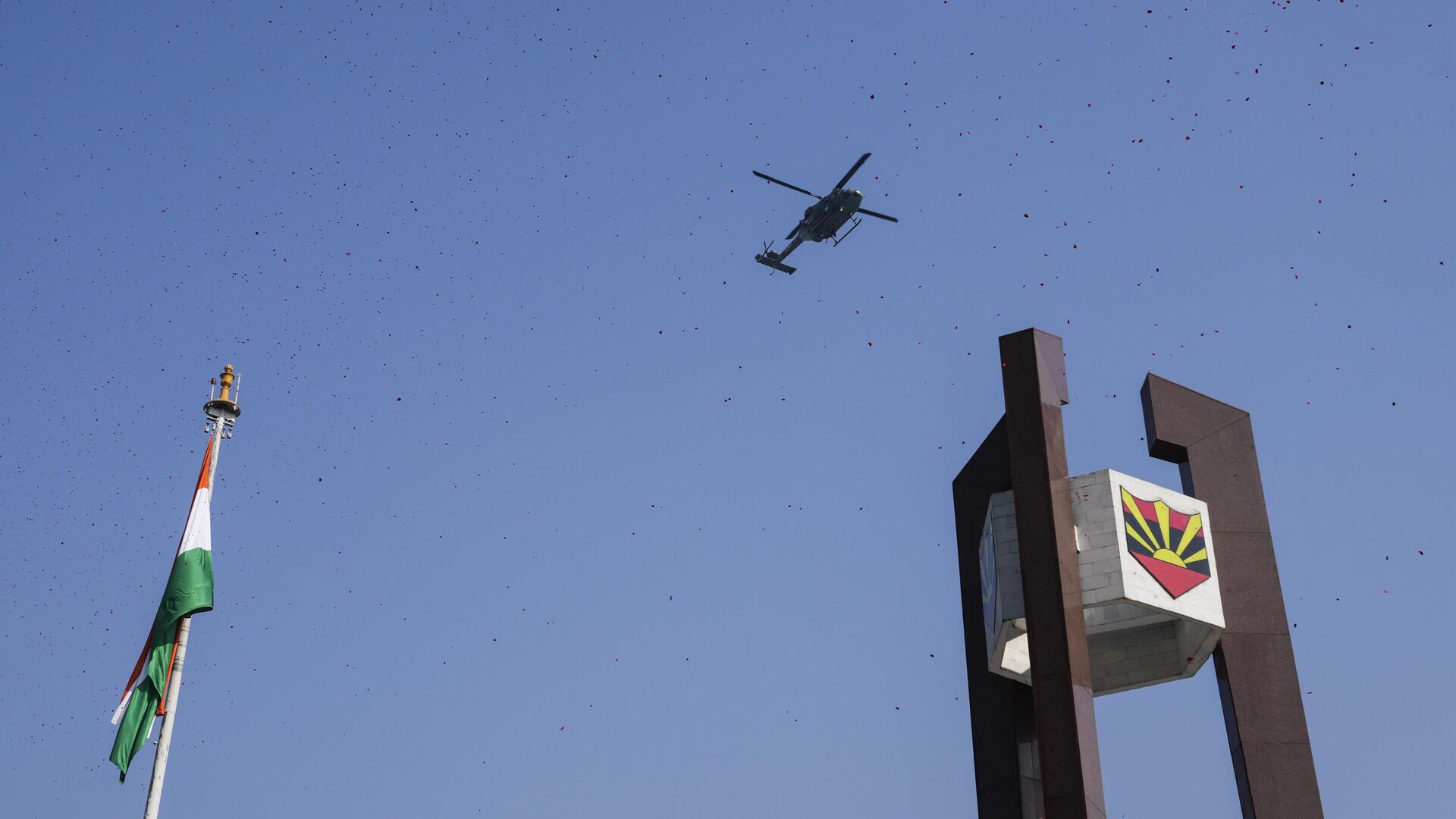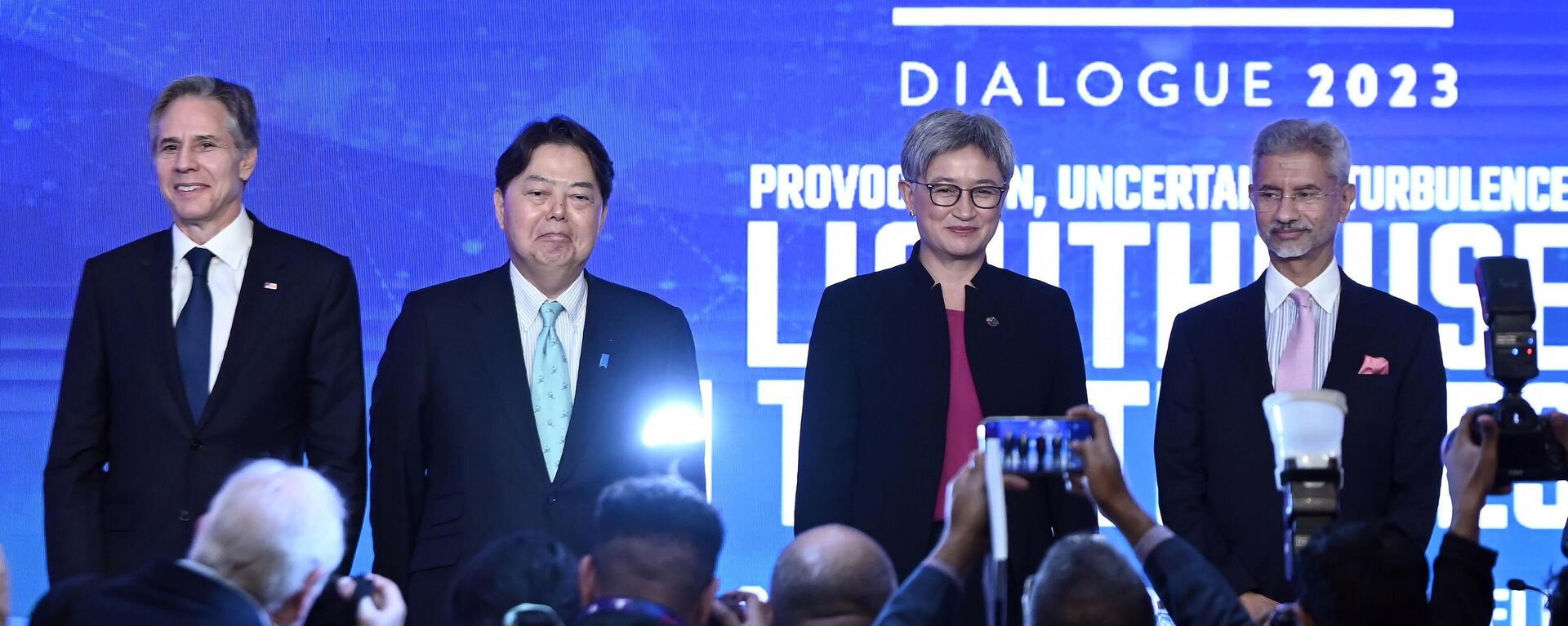https://sputniknews.in/20230313/india-got-tougher-on-terrorism-under-pm-modi-experts-confirm-1144793.html
India Got Tougher on Terrorism Under PM Modi, Experts Confirm
India Got Tougher on Terrorism Under PM Modi, Experts Confirm
Sputnik India
India and Pakistan announced a ceasefire on the Line of Control (LoC), the de-facto border between the two countries in Kashmir, in February 2021.
2023-03-13T16:34+0530
2023-03-13T16:34+0530
2023-03-13T16:51+0530
sputnik opinion
india
pakistan
new delhi
islamabad
indian army
indian air force (iaf)
narendra modi
terrorism
cross-border terrorism
https://cdn1.img.sputniknews.in/img/07e7/03/0d/1146225_0:160:3073:1888_1920x0_80_0_0_fb562855e5652dd7fdfa1647f69c2959.jpg
India's response to Pakistani terror provocations has undergone a sea-change under the leadership of Prime Minister Narendra Modi, with New Delhi likely to use military force more frequently than ever against Islamabad, Indian geopolitical experts and an Army veteran said.Indo-Pak Border TensionsIndia and Pakistan are currently adhering to a ceasefire on the border, after signing a pact in 2021. This led to a huge drop in the number of ceasefire breaches. 2020 saw 5,100 truce violations, which came down to zero in 2021 after the agreement was signed. Even in 2022, there were only three minor cases involving ceasefire infringements as the border largely remained quiet.However, pundits told Sputnik that Modi’s government has managed to alter the perceptions of India's threshold for restraint while warding off a constant nuisance from its western neighbor.This has been done by embarking on quick retaliation against any acts of terrorism and by strategically conveying it to international audiences and finding support as well.Paradigm Shift in India's Counter-Terror OperationsAs per Namita Barthwal, a researcher at the New Delhi-based military think tank, Centre for Land Warfare Studies (CLAWS), India's response has indeed changed under Modi."The Balakot Air Strike in 2019 in retaliation for the Pulwama Attack and the surgical strike in 2016 attributed to the Uri Attack demonstrated a change in the approach to countering Pakistan's grey zone operations without escalating the confrontation to a full-fledged armed conflict," Barthwal told Sputnik on Monday.Barthwal was referring to the surgical strikes India had conducted against the terrorist launch pads in Pakistan-administered Kashmir in September 2016, and the February 2019 bombing of a militant sanctuary in Balakot, Pakistan, by Indian Air Force fighter jets.However, she urged the Indian government to remain careful about entering into a grey-zone conflict with Pakistan because it has an ambiguous nuclear policy and because the India-Pakistan conflict will not receive the same kind of aloofness from the international community every time as it did during the Balakot airstrikes.Pakistan Unlikely to Precipitate Full-Fledged Conflict With IndiaDr. Priyanka Singh, an associate fellow at the Institute for Defence Studies and Analyses, who is an expert on India-Pakistan relations, agreed with Barthwal's views on the matter. "Under Prime Minister Modi, there are clear cases of swift retaliation against Pakistan's terror provocations - be it the surgical strikes in 2016 or the Balakot action later. The assertions by the US intelligence report, therefore, seem to be based upon this reality," Singh said, when speaking with Sputnik.She argued that India tackled and countered Pakistan's provocations in the past as well. However, for over more than a decade, India's choice to exercise 'strategic restraint' after the 2008 Mumbai terror attacks has remained at the center of discourse on how better India should approach Pakistan-aided terror.But Singh reckons that in the present situation, Pakistan is unlikely to escalate the confrontation with India, particularly right when Islamabad is facing one of its worst economic crises. Maj. Gen. (Ret.) Shashi Bhushan Asthana, a former Additional Director General of Infantry in the Indian Army, concurred with Singh and Barthwal, saying that the present government was "more proactive" in dealing with Pakistan."Certainly, we have been more proactive during the last decade or so, under the current government. Earlier, what was happening, was that since Pakistan became a nuclear state, there was a bit of hesitation in perhaps taking offensive action, expecting that there could be a nuclear reaction. But then this time around, the chance was taken," Asthana said in a conversation with Sputnik.
https://sputniknews.in/20230303/quad-nations-set-up-working-group-on-counter-terrorism--1063464.html
india
pakistan
new delhi
islamabad
Sputnik India
feedback.hindi@sputniknews.com
+74956456601
MIA „Rossiya Segodnya“
2023
Pawan Atri
https://cdn1.img.sputniknews.in/img/07e6/0c/13/139630_147:0:831:684_100x100_80_0_0_8fa2b25903e7787fe6a2698552c167df.png
Pawan Atri
https://cdn1.img.sputniknews.in/img/07e6/0c/13/139630_147:0:831:684_100x100_80_0_0_8fa2b25903e7787fe6a2698552c167df.png
News
en_IN
Sputnik India
feedback.hindi@sputniknews.com
+74956456601
MIA „Rossiya Segodnya“
Sputnik India
feedback.hindi@sputniknews.com
+74956456601
MIA „Rossiya Segodnya“
Pawan Atri
https://cdn1.img.sputniknews.in/img/07e6/0c/13/139630_147:0:831:684_100x100_80_0_0_8fa2b25903e7787fe6a2698552c167df.png
india pakistan pm modi military, pm modi pakistan response, pm modi india response pakistan, modi india response pakistan, modi pakistan response, modi pakistan india military response, pm modi pakistan terrorism response, narendra modi pakistan response, modi pakistan response us intelligence,
india pakistan pm modi military, pm modi pakistan response, pm modi india response pakistan, modi india response pakistan, modi pakistan response, modi pakistan india military response, pm modi pakistan terrorism response, narendra modi pakistan response, modi pakistan response us intelligence,
India Got Tougher on Terrorism Under PM Modi, Experts Confirm
16:34 13.03.2023 (Updated: 16:51 13.03.2023) In February 2021, India and Pakistan announced a ceasefire on the Line of Control (LoC), the de-facto border between the two nations in Kashmir. The valley has been a source of hostilities up till today.
India's response to Pakistani terror provocations has undergone a sea-change under the leadership of Prime Minister Narendra Modi, with New Delhi likely to use military force more frequently than ever against Islamabad, Indian geopolitical experts and an Army veteran said.
India and Pakistan are currently adhering to a ceasefire on the border, after signing a pact in 2021.
This led to a huge drop in the number of ceasefire breaches. 2020 saw 5,100 truce violations, which came down to zero in 2021 after the agreement was signed. Even in 2022, there were only three minor cases involving ceasefire infringements as the border largely remained quiet.
A recent US intelligence report claimed that military retaliation to any Pakistani misadventure — be it a terrorist attack in India or violence in Kashmir - is more likely under the leadership of PM Modi.
However, pundits told Sputnik that Modi’s government has managed to alter the perceptions of India's threshold for restraint while warding off a constant nuisance from its western neighbor.
This has been done by embarking on quick retaliation against any acts of terrorism and by strategically conveying it to international audiences and finding support as well.
Paradigm Shift in India's Counter-Terror Operations
As per Namita Barthwal, a researcher at the New Delhi-based military think tank, Centre for Land Warfare Studies (CLAWS), India's response has indeed changed under Modi.
"The Balakot Air Strike in 2019 in retaliation for the Pulwama Attack and the surgical strike in 2016 attributed to the Uri Attack demonstrated a change in the approach to countering Pakistan's grey zone operations without escalating the confrontation to a full-fledged armed conflict," Barthwal told Sputnik on Monday.
"India's responses succeeded because Pakistan's grey-zone operations brought about a paradigm shift in India's way of conducting counter operations that have affected Pakistan's cost and benefits of using terrorism to manage the asymmetric relationship with the country," she added.
Barthwal was referring to the surgical strikes India had conducted against the terrorist launch pads in Pakistan-administered Kashmir in September 2016, and the February 2019 bombing of a militant sanctuary in Balakot, Pakistan, by Indian Air Force fighter jets.
However, she urged the Indian government to remain careful about entering into a grey-zone conflict with Pakistan because it has an ambiguous nuclear policy and because the India-Pakistan conflict will not receive the same kind of aloofness from the international community every time as it did during the Balakot airstrikes.
Pakistan Unlikely to Precipitate Full-Fledged Conflict With India
Dr. Priyanka Singh, an associate fellow at the Institute for Defence Studies and Analyses, who is an expert on India-Pakistan relations, agreed with Barthwal's views on the matter.
"Under Prime Minister Modi, there are clear cases of swift retaliation against Pakistan's terror provocations - be it the surgical strikes in 2016 or the Balakot action later. The assertions by the US intelligence report, therefore, seem to be based upon this reality," Singh said, when speaking with Sputnik.
She argued that India tackled and countered Pakistan's provocations in the past as well. However, for over more than a decade, India's choice to exercise 'strategic restraint' after the
2008 Mumbai terror attacks has remained at the center of discourse on how better India should approach Pakistan-aided terror.
But Singh reckons that in the present situation, Pakistan is unlikely to escalate the confrontation with India, particularly right when Islamabad is facing one of its worst economic crises.
"Looking at the broader geopolitical circumstances, given America’s half-hearted support, China somewhat sitting on the fence and Islamabad's (economic) crisis and, overall, the region’s shrinking turf, especially in Afghanistan, Pakistan is unlikely to precipitate a crisis with India," Dr. Singh noted.
Maj. Gen. (Ret.) Shashi Bhushan Asthana, a former Additional Director General of Infantry in the Indian Army, concurred with Singh and Barthwal, saying that the present government was "more proactive" in dealing with Pakistan.
"Certainly, we have been more proactive during the last decade or so, under the current government. Earlier, what was happening, was that since Pakistan
became a nuclear state, there was a bit of hesitation in perhaps taking offensive action, expecting that there could be a nuclear reaction. But then this time around, the chance was taken," Asthana said in a conversation with Sputnik.
"So, once the chance was taken, one thing turned out to be quite clear, that there is room for a conventional military operation or a special operation despite the nuclear hangover," he concluded.



